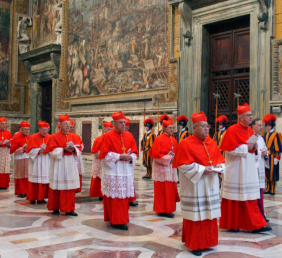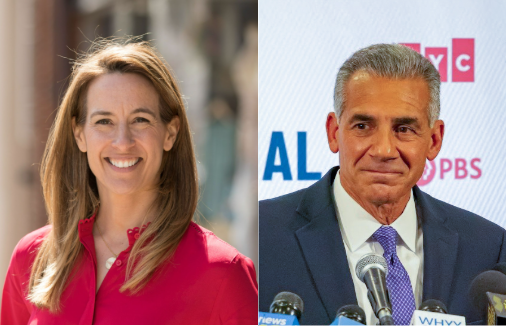
Pope Francis passed away on Monday, April 20, at the age of 88. According to The New York Times, he was known for his dedication to helping the poor and making the Catholic Church more inclusive. His death was announced early that morning in Rome, leaving the world in mourning. Now, the College of Cardinals must choose a pope who will continue Francis’ legacy. The process to elect a new pope, known as the conclave, will begin on Wednesday, May 7.
The Pope holds a vital role as both the spiritual leader and global representative of the Roman Catholic Church. As the head of the Holy See—the central government in Vatican City—he is responsible for guiding over 1.3 billion Catholics in matters of faith and morality. He plays a key role in maintaining unity among Catholics worldwide, ensuring that teachings and traditions are consistently followed and respected. As stated in Britannica, the pope also has the authority to appoint bishops and cardinals, shaping the church’s future leadership and direction. He acts as the final interpreter of the church’s teachings, by writing official letters, known as encyclicals, to explain Catholic beliefs. The pope also leads major public religious ceremonies, speaks out on global issues such as peace, poverty, the environment, and meets with world leaders to promote dialogue and cooperation. According to Vatican City Tours, the title “Pope” comes from the Greek word pappas, meaning “father,” reflecting his role as a spiritual guide and father figure to the church.
The cardinals, by whom the pope is always chosen, are senior church officials appointed by the pope. Most cardinals are bishops or archbishops, and they are considered the pope’s closest advisors. Their responsibilities include overseeing large regions of the church, serving on Vatican Councils, and advising key decisions. Cardinals wear distinctive red robes symbolizing their willingness to defend the faith, even to the point of shedding blood. Cardinals are appointed from all over the world—North and South America, Europe, Africa, Asia, and Oceania—reflecting the global nature of the Catholic Church and helping ensure that diverse perspectives are included in the church’s leadership.
There are about 250 cardinals worldwide, but only those under the age of 80 are allowed to vote. Jonathan Morris, theologian and news commentator, told Fox News that before voting begins, the cardinals meet informally, often in private locations, like hotel rooms or restaurants, discussing potential candidates and the needs of the Church. Once they officially enter the conclave, held in the Sistine Chapel, they are completely cut off from the outside world—no phones, no electronics, and no contact with anyone. All windows are covered, and the cardinals take an oath of secrecy. Only men can be elected pope; women, by tradition, remain in religious roles such as nuns.
According to CNN, the voting process is highly ritualized and happens four times a day: two votes in the morning and two in the afternoon, each session spaced about two hours apart. Each cardinal walks to the altar in order of seniority and places a secret ballot into a covered receptacle. Three scrutineers, or vote counters, sit at a table and carefully collect, review, and tally the votes. Early on, many names may be suggested, but as the voting continues, the cardinals begin to shift their support toward fewer candidates. At first, there might be seven or eight serious contenders, but after several rounds, it usually narrows to just three or four. After every round, the ballots are burned—if no candidate receives the required two-thirds majority, black smoke appears from a chimney outside the Vatican to signal that no pope has been chosen.
As stated in Newsweek, voting continues day after day until a candidate finally receives the two-thirds majority. Once a new pope is elected, the Dean of the College of Cardinals, asks the chosen cardinal if he accepts the position and what name he wishes to take as pope. Once he accepts, white smoke rises from the Vatican, announcing to the world that a new pope has been chosen. Shortly after, the new pope steps onto the balcony, framed by red curtains, and gives his first apostolic blessing, known as the Urbi et Orbi — meaning “To the City and to the World.”
With the conclave just days away, the Church stands at a turning point. The world now looks to the cardinals to choose a new pope—one who will carry forward the mission of faith, compassion, and leadership.
















































































































































